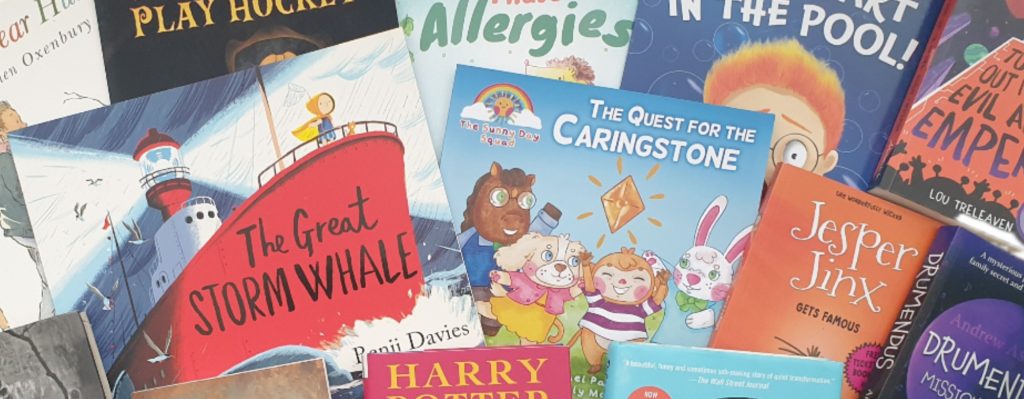We live in a digital age. Our homes are littered with tech in every room from smart light bulbs to state-of-the art computers, robot vacuums to internet-connected kettles. In an age where screens rule and can be a constant distraction for kids (and let’s be fair, adults as well), the simple act of opening a book can feel revolutionary. But the simple act of reading is beyond entertainment, reading lays the foundation for lifelong success in a variety of ways: it helps boost cognitive skills, nurtures emotional resilience and fosters a sense of wonder in young minds. Here’s why every child who cracks a spine stands to gain more than just a story.
Supercharge Cognitive Development
When children pick up a book and engage with it, this simple act gives their brain a gym workout, flexing their brain’s “muscle”. This simple brain exercise helps to develop comprehension and critical thinking skills. But reading is so much more than just looking at a series of words on a page: while reading, children are decoding words, following plot threads and predicting outcomes, all of which demand active mental engagement and studies show this can improve overall intelligence and problem-solving abilities. Over time, this mental exercise helps strengthen neural connections, making it easier to learn new concepts in school and beyond into adulthood.
Expand Vocabulary and Language Skills
Books and reading exposes children to rich and varied language, giving young page turners a “word bank” far deeper than everyday conversation. Reading allows them to encounter descriptive phrases, idioms and even technical terms in context, which helps to boost vocabulary naturally – no flashcards required. This same exposure also helps to sharpen grammar and writing skills, setting young learners up for success in essays, presentations, and social communication.
Ignite Imagination and Creativity
Books transport young readers into worlds built entirely from words: enchanted forests, futuristic cities or even the hidden corners of history. This mental world-building sparks creativity, in turn encouraging children to dream up their own stories, art projects or inventions. As the immortal Dr. Seuss reminds us,
The more that you read, the more things you will know.
The more that you learn, the more places you’ll go.– Dr. Seuss, I Can Read with My Eyes Shut!
Cultivate Empathy and Emotional Intelligence
Reading has many gifts, but one of reading’s most profound gifts is perspective-taking. By stepping into a character’s shoes, whether it’s a dragon-riding knight or a modern schoolkid navigating friendship drama, young readers learn to identify emotions, understand motivations, and appreciate diverse viewpoints. Over time, this practice of empathy carries into real-life interactions, helping to fuel kindness and inclusivity.
Reduce Stress and Support Mental Well-Being
Research by Dr David Lewis (“Galaxy Stress Research,” Mindlab International, Sussex University) shows that just six minutes of reading can lower stress levels by 60%, more effectively than listening to music or taking a walk. Immersing yourself in a captivating tale offers a healthy escape from daily worries, creating a calming “time-out” for young minds. Regular reading routines also improve sleep quality, especially when screens are swapped for soft-lit pages before bedtime.
Foster Lifelong Learning Habits
Curiosity is contagious. A child who discovers the magic of reading is more likely to pick up books on science, history or hobbies that intrigue them. That self-driven pursuit of knowledge lays the groundwork for academic resilience: when challenges arise in class, students with strong reading habits are better equipped to research solutions, ask informed questions and tackle complex topics head-on.
Encourage Family Bonding and Social Connection
Reading doesn’t have to be a solo sport. Shared storytime, with parents, siblings or in classroom settings, creates warmth and rapport. Discussing favourite parts, acting out scenes or even designing homemade bookmarks together turns reading into an interactive experience. These rituals also reinforce the idea that learning is fun and communal.

Practical Tips to Grow Young Readers
- Start Early & Keep It Fun Create a cosy reading nook stocked with picture books, comics, and early-chapter titles. Let children choose stories that spark their interest – whether that’s dinosaurs, fairy tales or space adventures.
- Model Reading Behaviour Let kids see you engrossed in novels, magazines, or cookbooks. When they witness adults prioritising reading, they internalise it as a valuable and enjoyable habit.
- Mix Formats Combine physical books with eBooks, audiobooks, and graphic novels. Different formats cater to varied learning styles and help reluctant readers find their “sweet spot.”
- Leverage Themes & Activities After finishing a book, encourage a related craft, recipe, or mini science experiment. For instance, a story about explorers could lead to a treasure-map drawing or homemade “discovery journal.”
- Visit Libraries and Bookshops Libraries offer free access to thousands of titles, and often host fun reading challenges or storytime events. Local bookshops can be magical for browsing and discovering new releases.
Reading is more than a pastime; it’s an investment in a child’s intellectual, emotional and creative future. By making books accessible, fun and part of daily life, parents and educators chart a course toward confident learners and empathetic citizens. So let’s turn the page on screen fatigue and guide our young readers toward the endless adventures waiting between the covers.
Not sure what books to start with on your child’s lifelong reading journey? Have a browse through our book reviews and get inspired.
Click here to read our other blog posts and articles.
Photo credit: Featured image by Petra from Pixabay


